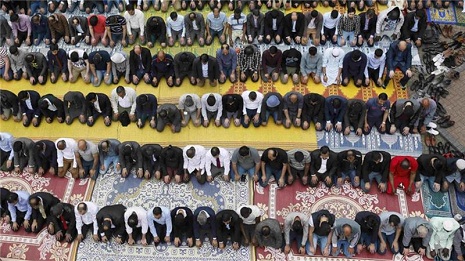The Trussell Trust, the UK`s largest network of food banks, with more than 1,000 affiliated food distribution centres, suggested a few months ago that, with nearly one million people being forced to survive on food aid, "life has gotten worse, not better, for the poorest in 2013/14".
A special report published by Church Action on Poverty, The Trussell Trust, and Oxfam:
Below the Breadline The Relentless Rise of Food Poverty in Britain, uncovered something very disturbing, particularly for a first-world economic power like Britain. It reported that "millions of families across the UK are living below the breadline", and between them, these three main food aid providers supplied "20,247,042 meals to people in food poverty in 2013/14".
The numbers alone can tell the story. Several years ago there were hardly any food banks in the UK; now, there are more than 1,000.
State responsibility
With an enviably liberal welfare state system for the last seven decades, the British government has a duty to "improve health, education, employment, and social security".
However, in recent times, under severe economic slowdowns against the backdrop of the 2008 recession and austerity-focused fiscal policies post-2010, many people have come under severe financial strain and are struggling to make ends meet.
Those who live in economically and socially deprived communities are suffering from "low income poverty". Although poverty in Britain is different in extremity to that faced by millions in the developing world, it is a source of social exclusion leading to a number of other issues such as poor health, high levels of homelessness, high crime rates, and family breakdowns.
In the midst of all this, it is a wonderful achievement that Britain is recognised as the most charitable developed nation in the world, with faith communities giving the most.
Our charity sector has been well known for serving people, including the alleviation of poverty among the most vulnerable. Many of the afflicted see charitable organisations as a safety net in times of dire need. Civil society organisations with altruism-oriented programmes are indeed the backbone in this area.
Embracing generosity
Within the charity sector, British Muslims are known to give more. They outshine others during the month of Ramadan, embracing its ethos of giving, sharing, and caring. In this month of heightened spirituality, Muslims remind themselves that their giving to others is not mere generosity, but rather, according to the Quran (51:19), the "needy have a rightful share in their wealth".
Charity giving in the month of Ramadan multiplies manifold because of this heavy religious emphasis. While many British Muslim charities were established in the last few decades to address the needs of the vulnerable across the globe, many Muslim Charities are now shifting their focus to local aid - delivering valuable services to people in a number of vital areas of need.
More about:
















































